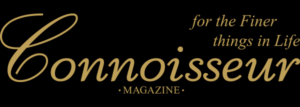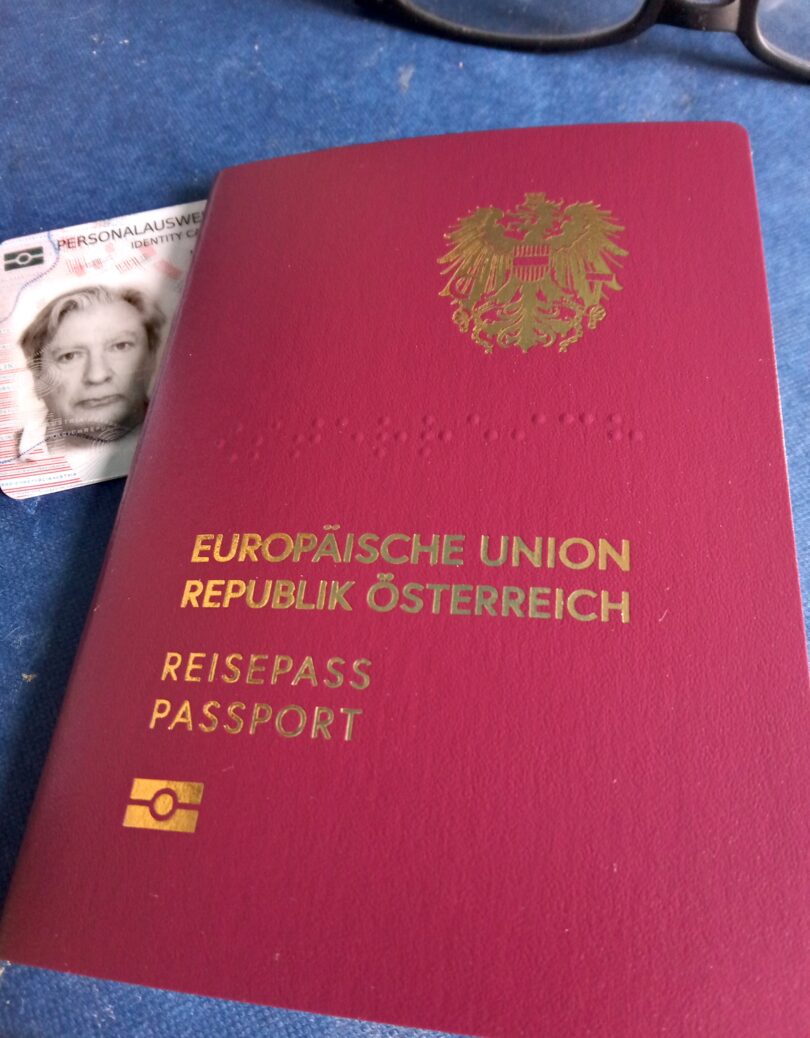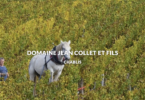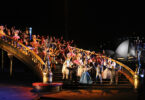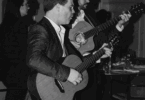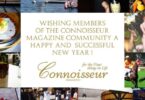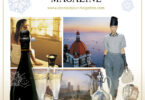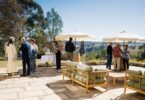A Quest for Asparagus
*Written by Giles MacDonogh
On 11 June I assumed my new identity for the first time. Up until that moment I had been solely British, having Her or more recently His Britannic Majesty as my protector should anything go wrong. On this day, however, I packed my new, Austrian passport leaving my British one in the draw. Travelling on the European Mainland with a British passport has become one humiliation after another.
The difference was apparent from the start. At London’s St Pancras Station, British passport holders are required to have their passports stamped before boarding the Eurostar train. In a few months-time, they will also need to provide fingerprints and obtain a visa. Travellers are warned that they need to allot more time before arriving for their trains. If you have an EU passport, however, your passage through to the lounge is over in a matter of minutes.
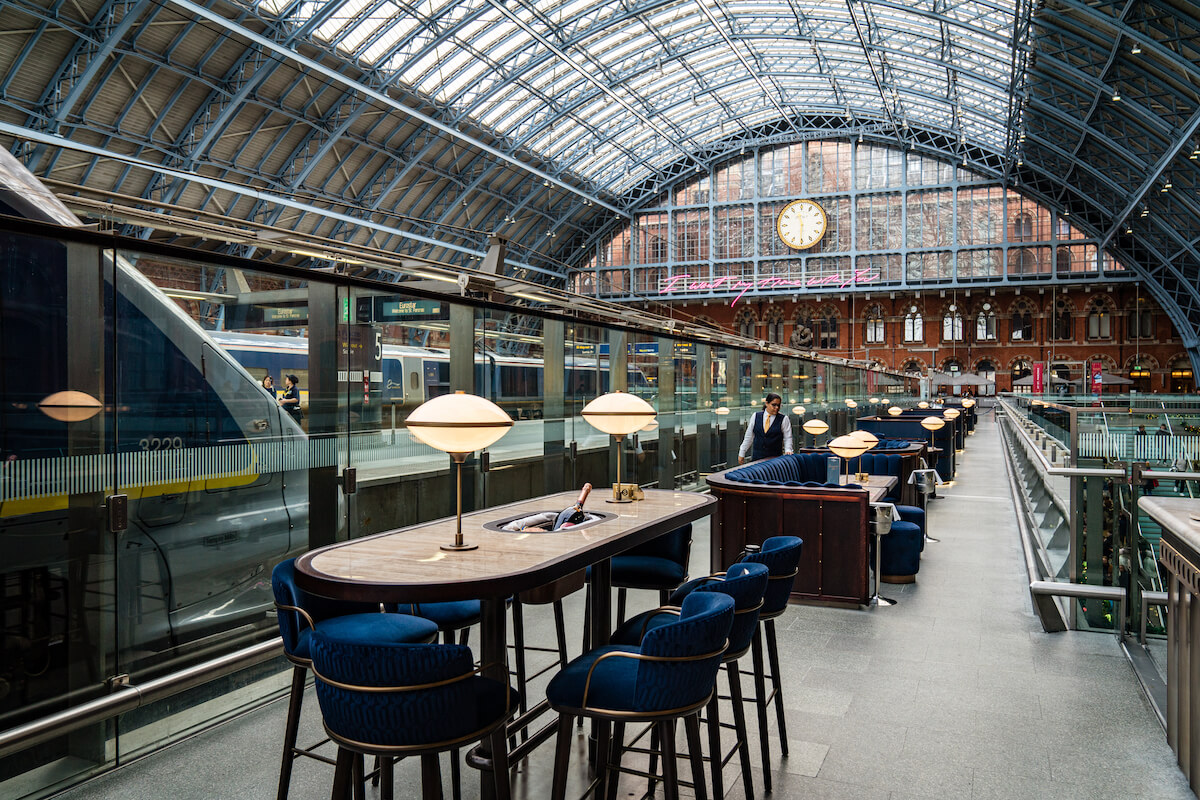
London’s St Pancras Station Champagne Bar
Many Britons have obtained EU passports since the Brexit vote of 23 June 2016. I am certain that most of these invoked an Irish parent or grandparent and applied for an Irish one. According to the 1949 Ireland Act, the Republic of Ireland is ‘not a foreign country’, which makes its position slightly different to the rest of Europe. Strictly speaking you don’t need a passport to go to Ireland and vice versa.
Having had two Irish grandparents (whom I never met), I might have done the same, but my children would not have been included. The Austrian grandfather (whom I never met either), allowed my children and their children to acquire citizenship in perpetuity. That seemed a better option. I hasten to add that it was not a mercenary decision on my part. My right to Austrian citizenship was a case of ‘wiedergutmachen’, a compensation for the way the Nazis treated my grandfather. It was not a gift. Had Hitler not invaded Austria in 1938, my mother would have remained in Austria and her children would have been Austrians.
Still, it felt odd. Two days later I got on a train at the Gare de l’Est to go to Frankfurt. There was a long, disorderly queue emanating from the barrier composed mostly of schoolchildren. I asked one of them in French if she was queuing for the Frankfurt train. She looked blank, so I tried again in German. She said it was indeed the Frankfurt train and asked me where I was from. I thought for a while and replied truthfully, ‘Austria.’ She and her friends giggled. They knew an Austrian accent when they heard it, and not having been brought up in Austria, I didn’t have it.
When I came back from Germany via Frankfurt Airport my wholly British wife took a different, much slower queue where her passport was stamped. I went to the duty-free shop and bought some Steinberg Riesling. The woman behind the till was chewing gum. She asked to see my passport in English. I showed it her. At once she switched to German. Her manner improved too.

As it was, I had gone to France to visit my 97-year-old mother in hospital. I had bought a ticket well in advance and found a bed in a friend’s flat. My mother died on 9 May, however, so I spent two nostalgic nights in the French capital instead, before joining my wife and daughter in Germany. On the first night the friend and I dined in an excellent local restaurant called Le Hangar: a terrine of rabbit and chicken livers, beef fillet with a sauce of morel mushrooms and a crème brûlée. My host had brought along a Fixin from the Domaine Berthaut-Gerbet. The next night he let me do the cooking. It was a rare treat to be able to put together a menu from ingredients you find in a good Paris shopping street.
That street was the rue Rambuteau. From a traditional butcher I bought a veal kidney which he prepared for me by removing both suet and gristle, as well as some duck rillettes and pâté de campagne. I bought cream and mustard for the sauce. I found lovely broad beans and new potatoes from the greengrocer opposite, and some mature Cantal cheese from the cheesemonger. There was an artisan baker in the rue Saint-Martin for baguettes. My host supplied a tarte fine.
I had lived in the rue Saint-Martin for a few months some forty years before but failed to locate the building. What I did see was a ghost restaurant, with its menus still up, and which looked both nice and cheap. It must have gone belly-up during the pandemic. Paris was hit hard too, but it has recovered better than London.
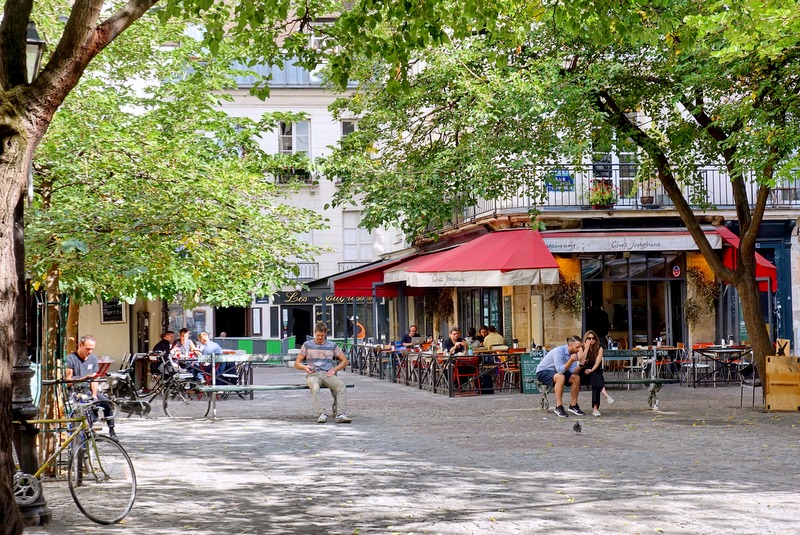
Place du Marché Sainte-Catherine
That afternoon I had a lovely walk by myself in the Marais, looking at old palaces and haunts. The place where a friend had lived in the rue du Foin, a restaurant where I used to take touring American students in the place du Marché Sainte-Catherine and had to cover the heads of the trout with slices of lemon because the students didn’t like the fish looking at them while they ate, the flat my sister rented in the place des Vosges one long vac, many favourite bars, shops and restaurants long gone; many adventures, loves lost, the past, my past. The next day after a late breakfast, I made my way slowly towards the Gare de l’Est and left for Germany.
I got in at five, my wife was there to meet me. Frankfurt was bright and sunny and full of drunken Scots. They had captured a bar on the Römerplatz and were striking up a hell of a din. I was hoping for a plate of white asparagus, which was still in season, so we pushed on towards the Cathedral and found an old-fashioned Metzgerei, a butcher with tables where we could have a plate of Leberkäs or meatloaf at least and a glass of Pfalz Riesling. Here we were joined by my daughter who had come from her office nearby. Fortified, we walked to the modern Opera House for a performance of The Magic Flute punctuated by another big glass of Riesling at half time.
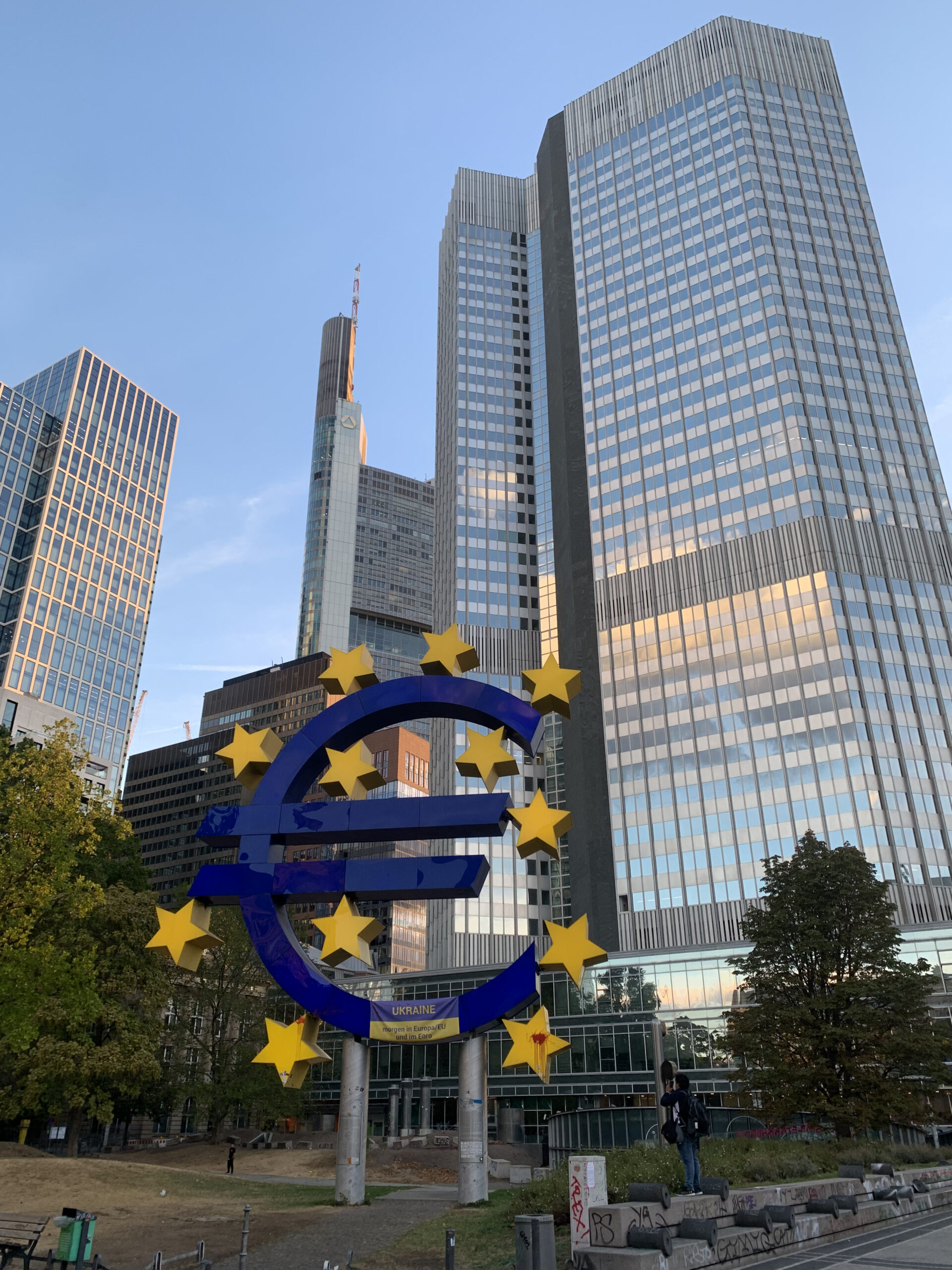
The centre of Frankfurt was almost completely destroyed by Allied bombing during the war, so we decided to explore the periphery. The next day my wife and I went to Kronberg, a pretty, small town just outside the city where Queen Victoria’s daughter Vicky, wife of the ill-fated Kaiser Fritz, built herself a palace after his death. The weather was quite cold and overcast, and we dismissed the idea of sitting outside to eat some asparagus with Croatian truffles. The palace is now partly a hotel and we decided to have a snack there instead, but my daughter suggested we return to the city. Not that it was easy to find what we wanted. The trendy places had little of the local about them. Others were filled with riotous Scots. We had a pretty nasty bowl of soup in a café then explored the north and west ends of the city, with their ranges of well-preserved buildings from Biedermeier to the boom-time preceding the First World War. Little was constructed between the wars, there wasn’t any money. An exception was the huge former HQ of IG Farben by Hans Poelzig, which became Allied Supreme Command after the war, and is now the central building of the Goethe University.
We finally flopped down under a mediaeval watch tower in the far less chichi, studenty borough of Bockenheim. The bar was Turkish, and the waiter glued to a television screen. From there we walked back to the centre and Mutter Ernst, a Hessian restaurant in the Rahmhofstrasse. Along the way, we were joined by more and more men in kilts, but at the very last moment they all branched off into the Irish pub next door. Asked if we wanted to be put in front of a TV, we said no, but opposite us we could see Germans watching the Germany-Scotland match, and to the left the Scots had their own screen in the pub forecourt.
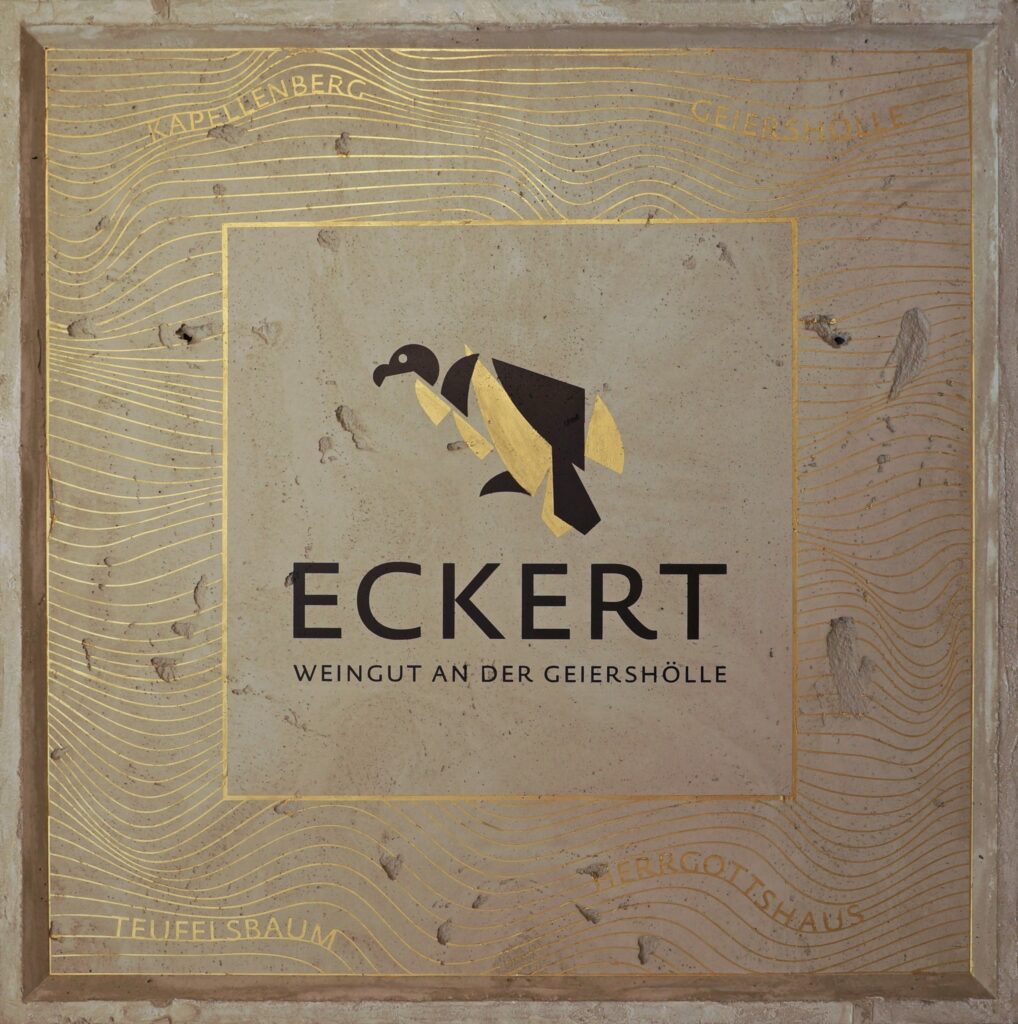
We ordered a Hessian meal: Handkäse mit Musik, a pungent, rubbery whey cheese always served with onions and vinegar, which has the power to frighten German adults. I had a Schlachtplatte, a ‘slaughter dish’, with black pudding, liver sausage, pork, sauerkraut and potato purée. We drank Grauburgunder from Eckert in Kleinwinternheim in Rheinhessen.
The Scots were brimming with bravado at the beginning but they became muted with time, and fell into almost total silence by the end of the game. The Germans facing us were increasingly light-hearted despite a meal rendered almost impossible by waiters permanently distracted by the progress of the match. Only after dinner did I learn how disastrous it had been for Scotland. The Germans won five-one and Scotland’s one goal was scored by the Germans.
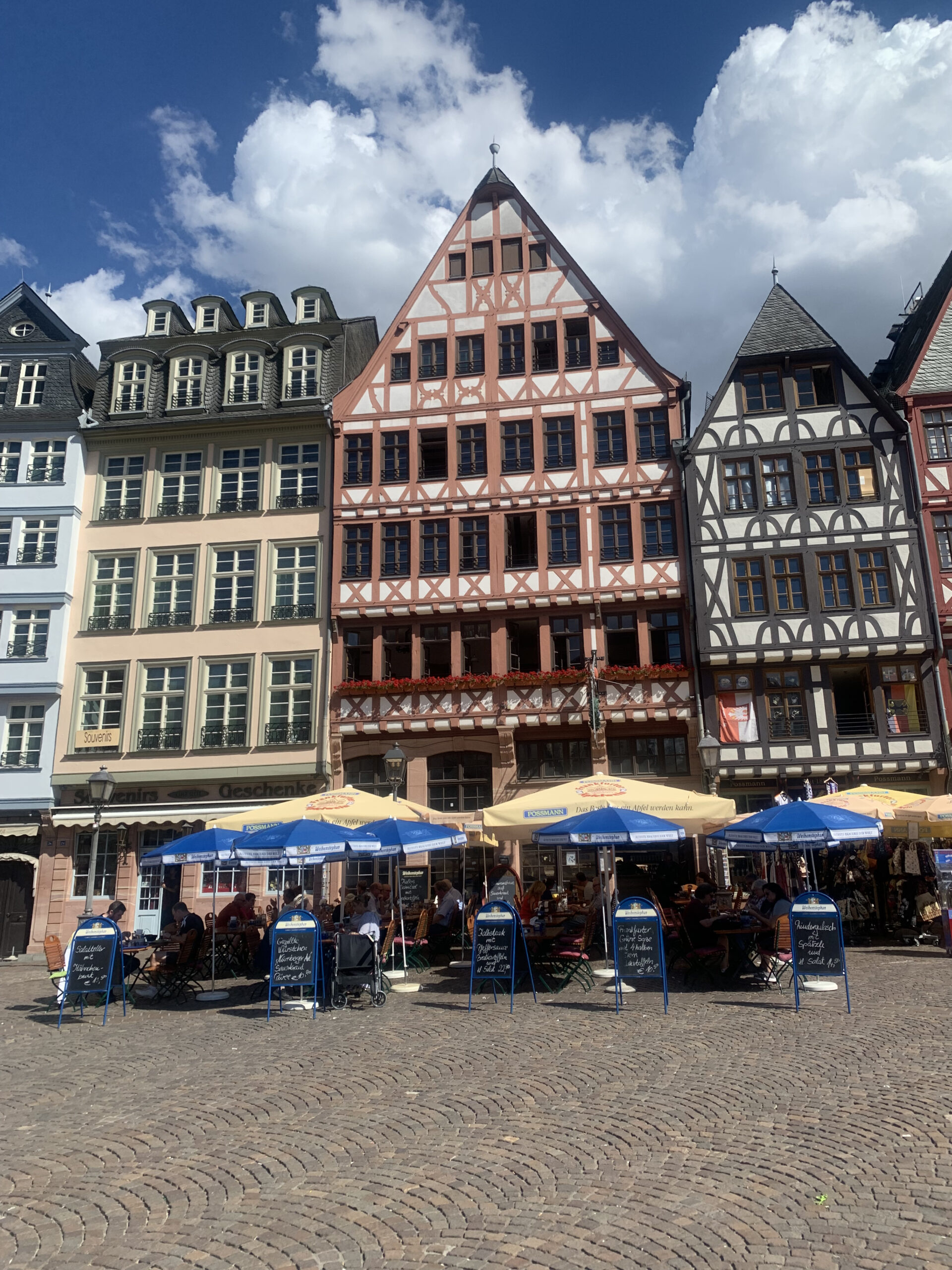
On Saturday we all went to Bad Homburg, which was at the end of my daughter’s U-Bahn line. The walk from the station was slow to reveal the charms of the where European royalty gambled away countries and fortunes before the First World War, but once you get to the top all is revealed around the schloss and the avenue of nineteenth century hotels where spa-goers and gamblers found their digs. There is a small area where French Protestants settled after 1685, and from the Schloss terrace you look out towards the Taunus Mountains. We stopped for a beer and a bite, but there was still no asparagus. We walked back through the spa part and tasted the water. By the classical bath house Muslim couples were being photographed for their weddings in nylon dinner jackets, or metres of organdie or tulle.
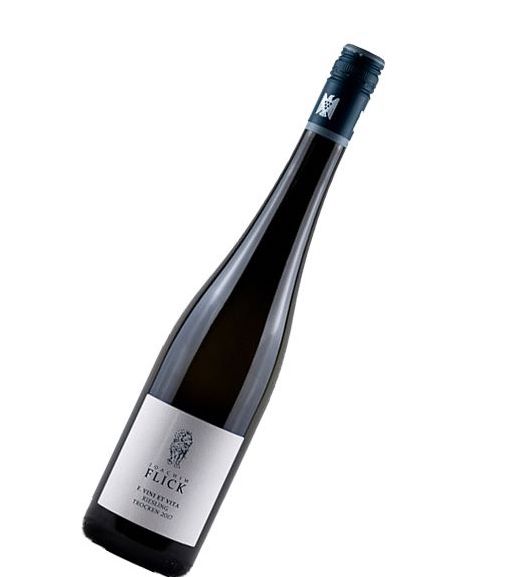
After a pit-stop for a gin and tonic we went to dinner at Atschel in Sachsenhausen. The chaos was similar to the night before, except that no one really had a dog in this fight: Italy was playing Albania and the owners of the restaurant turned out to be Moroccans, while the chef was Maltese. We even had the usual on-the-house goodbye drink brought before any food, other people’s orders were brought to us and jugs of cider we hadn’t asked for. The chef was never in his kitchen, he was watching the box. Still, in the end I had some nice braised pigs’ cheeks and good old vine Riesling from Joachim Flick in the Rheingau.
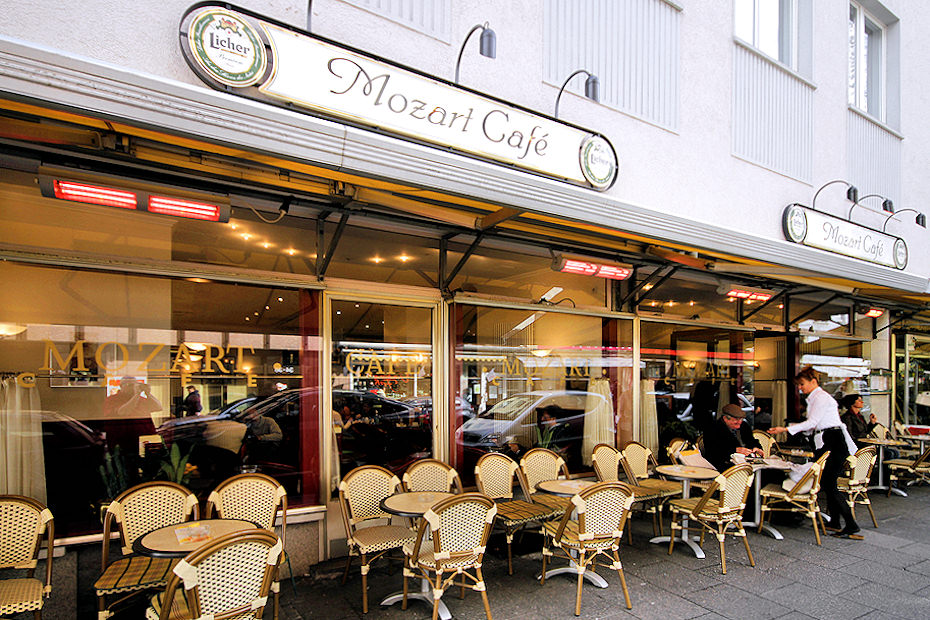
On our last day, we looked a bit at Bornheim and the East End. It was obviously far less ‘desirable’ than the North or West Ends of the city, but there were plenty of older buildings around the Zoo. As usual we trudged on for hours before settling down to eat something, in this instance this was at the Café Mozart in the centre of Frankfurt. And here, at last, there was some good, old-fashioned white asparagus with Hollandaise sauce on the menu: bliss!
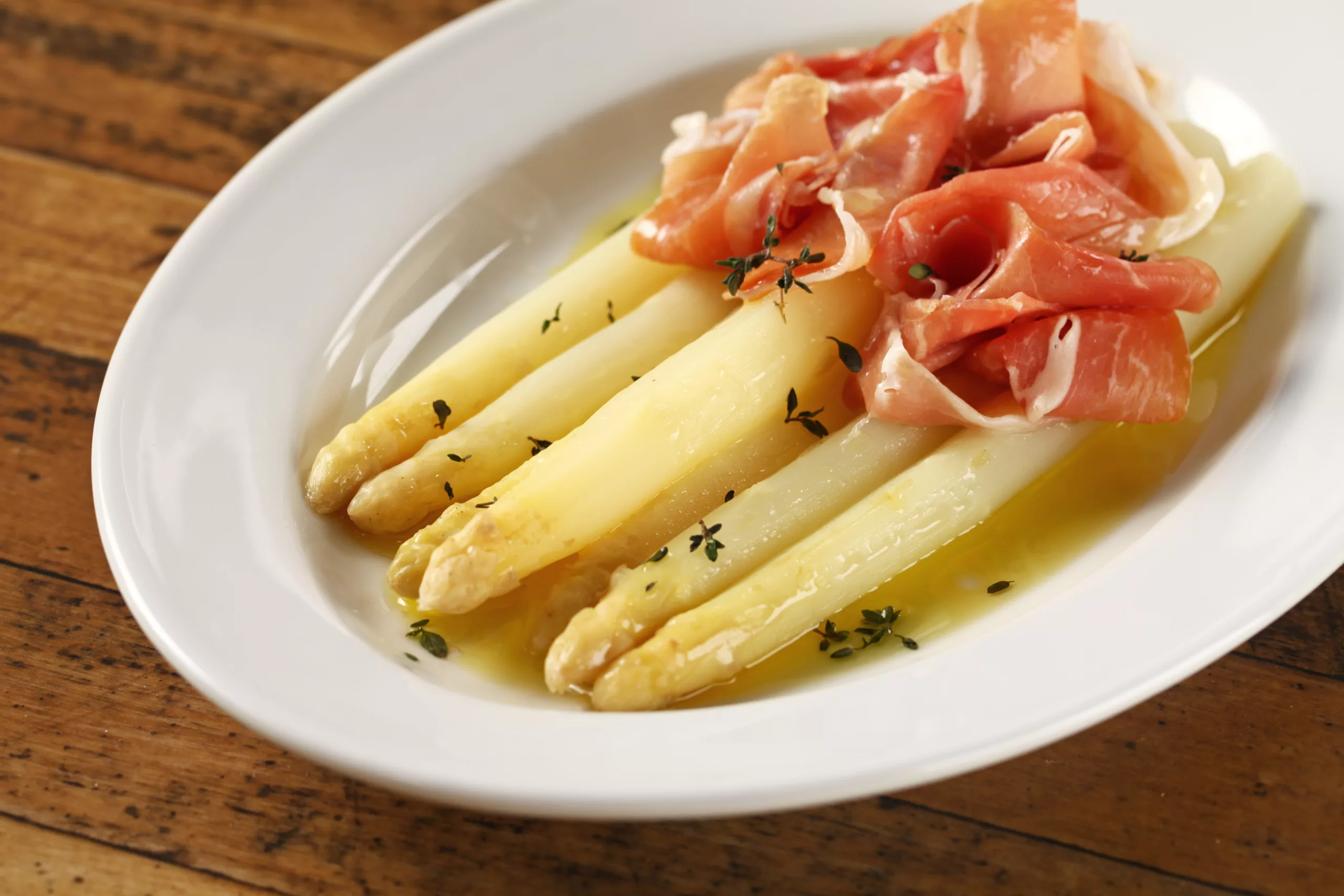
Ends
*Giles MacDonogh is the author of fourteen books on subjects as diverse as German history, French gastronomy and wine.
He has written for major newspapers in Britain and Europe such as the Financial Times, the Guardian, the Times and FT Deutschland. He has contributed to magazines all over the world including Decanter
Examples of MacDonogh’s writings are available from the archive at FT.com.
